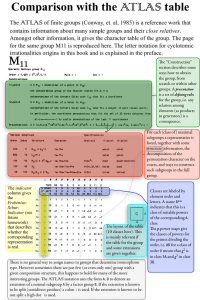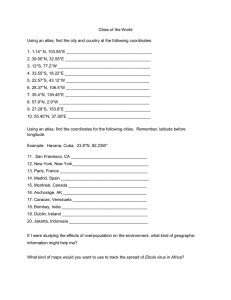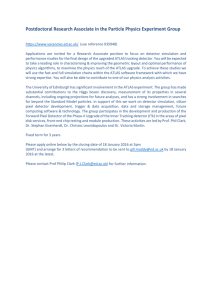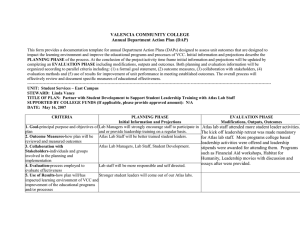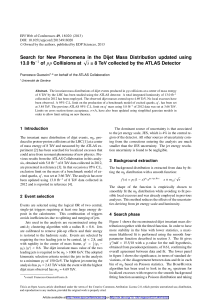Fact Sheet
advertisement
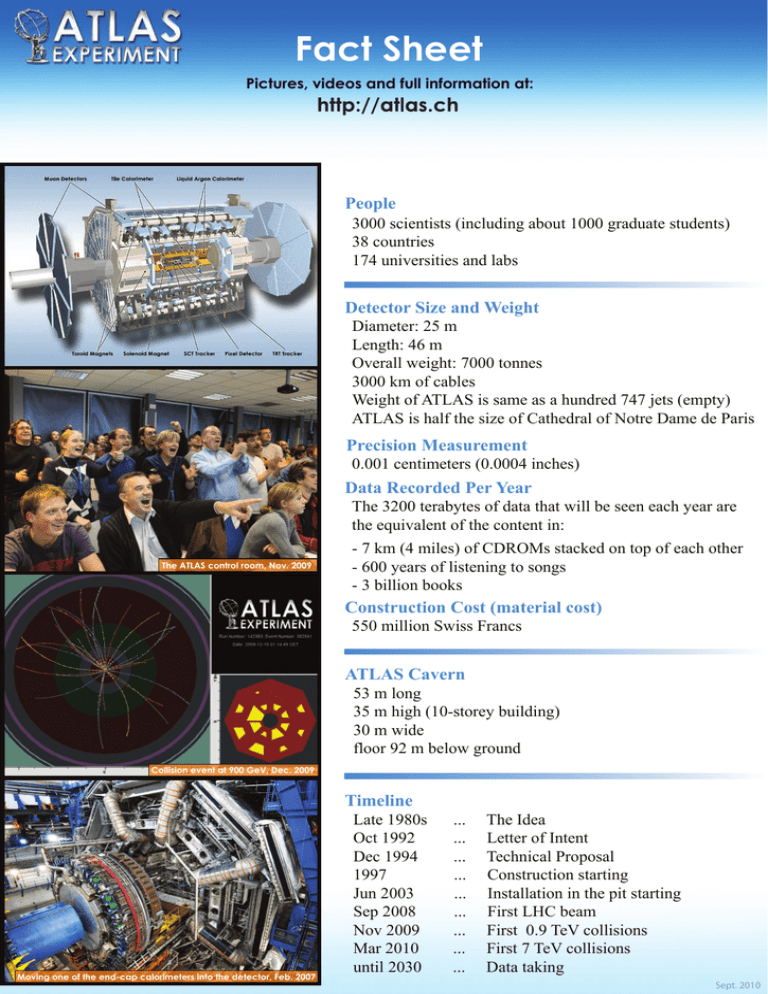
Fact Sheet Pictures, videos and full information at: People 3000 scientists (including about 1000 graduate students) 38 countries 174 universities and labs Detector Size and Weight Diameter: 25 m Length: 46 m Overall weight: 7000 tonnes 3000 km of cables Weight of ATLAS is same as a hundred 747 jets (empty) ATLAS is half the size of Cathedral of Notre Dame de Paris Precision Measurement 0.001 centimeters (0.0004 inches) Data Recorded Per Year The 3200 terabytes of data that will be seen each year are the equivalent of the content in: The ATLAS control room, Nov. 2009 - 7 km (4 miles) of CDROMs stacked on top of each other - 600 years of listening to songs - 3 billion books Construction Cost (material cost) 550 million Swiss Francs ATLAS Cavern 53 m long 35 m high (10-storey building) 30 m wide floor 92 m below ground Collision event at 900 GeV, Dec. 2009 Timeline Moving one of the end-cap calorimeters into the detector, Feb. 2007 Late 1980s Oct 1992 Dec 1994 1997 Jun 2003 Sep 2008 Nov 2009 Mar 2010 until 2030 ... ... ... ... ... ... ... ... ... The Idea Letter of Intent Technical Proposal Construction starting Installation in the pit starting First LHC beam First 0.9 TeV collisions First 7 TeV collisions Data taking Sept. 2010 Fact Sheet Pictures, videos and full information at: The Set of Toroid Magnets weighs 1300 tonnes and has 1.6 GJ of stored energy. This is the same as the energy: - to melt 64 tonnes of lead - of 2000 cars cruising at 100 km/h - of the whole ATLAS magnet if it were "flying" at 180 km/h 80 kilometers of superconducting cable in magnets Barrel Toroid Magnets The first installed ATLAS inner detector end-cap. May 2007 25 m length; 20 m outer diameter 830 tonnes weight End-cap Toroid Magnets 5 m axial length; 11 m outer diameter 240 tonnes weight each Collision Events (at full luminosity and at 14 TeV) Muon wheel and end-cap magnet in Dec. 2007 When any of the protons collide, the process is called an "event". Bunches of protons cross 40 million times a second. Each bunch contains 1011 protons. About one billion proton-proton collisions per second occur in the detector. The Trigger and the Event Filter then select for permanent storage about 200 "interesting" events per second. Typical frequency of producing a Higgs boson that has decayed to two Z bosons each of which has decayed to an electron-positron pair is extremely rare: once in 1013 = 10,000,000,000,000 interactions. The last barrel toroid magnet is placed into its final position, Aug. 2005 Trigger and Data Acquisition (TDAQ) If all data would be recorded, this would fill 100,000 CDs per second. This data rate is also equivalent to making 50 billion telephone calls at the same time. Computing There are more than 5 million lines of code written for event analysis. The computing effort uses 3000 online PCs and 100,000 PCs for offline processing and analysis. Simulated Event in ATLAS Sept. 2010
